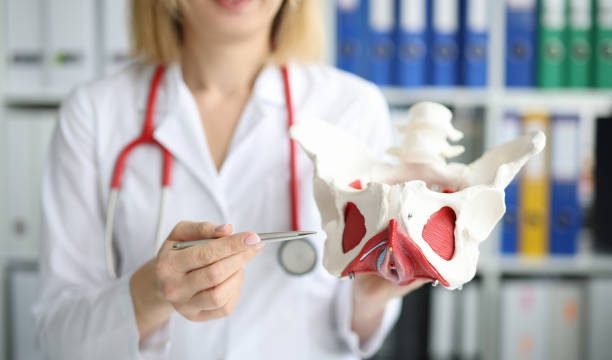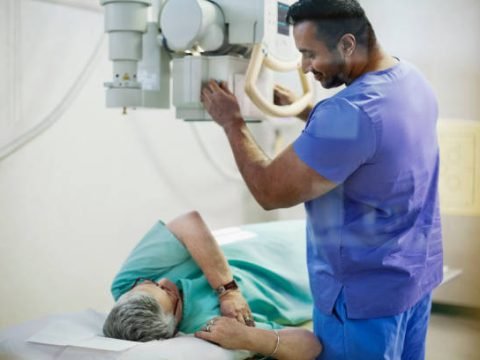
Anatomy is the branch of biology concerned with the study of the structure of organisms and their parts. It is a fundamental science that provides essential knowledge about the physical organization and arrangement of the body’s systems, organs, tissues, and cells. Understanding anatomy is crucial for many fields, especially those related to health and medicine.
30 Careers Related to Anatomy
1. Anatomist
Role: Study the structure of living things.
Education: PhD in Anatomy or related field. Career Path: Research, teaching, medical schools, or biotechnology companies.
2. Surgeon
Role: Perform operations to treat diseases, injuries, and deformities.
Education: Medical degree (MD), surgical residency.
Career Path: Specializations (e.g., cardiovascular, orthopedic), hospitals, private practice.
3. Physician
Role: Diagnose and treat illnesses.
Education: Medical degree (MD or DO).
Career Path: General practice, specialties (e.g., cardiology, dermatology).
4. Radiologist
Role: Interpret medical images to diagnose diseases.
Education: Medical degree (MD), radiology residency.
Career Path: Hospitals, clinics, private practice.
5. Pathologist
Role: Study diseases by examining tissues, cells, and organs.
Education: Medical degree (MD), pathology residency.
Career Path: Hospitals, laboratories, academic research.
6. Physical Therapist
Role: Help patients recover mobility and manage pain.
Education: Doctor of Physical Therapy (DPT) degree.
Career Path: Hospitals, clinics, private practice.
7. Occupational Therapist
Role: Assist patients in developing, recovering, and improving skills needed for daily living.
Education: Master’s or Doctorate in Occupational Therapy.
Career Path: Hospitals, rehabilitation centers, schools.
8. Forensic Scientist
Role: Apply scientific methods to solve crimes.
Education: Bachelor’s degree in forensic science, biology, or chemistry.
Career Path: Law enforcement agencies, government labs, private firms.
9. Chiropractor
Role: Treat musculoskeletal issues, especially back and neck pain.
Education: Doctor of Chiropractic (DC) degree.
Career Path: Private practice, clinics.
10. Dentist
Role: Diagnose and treat oral health issues.
Education: Doctor of Dental Surgery (DDS) or Doctor of Dental Medicine (DMD).
Career Path: Private practice, clinics, hospitals.
11. Orthodontist
Role: Specialize in correcting teeth and jaw alignment.
Education: Dental degree plus orthodontics residency.
Career Path: Private practice, dental clinics.
12. Pharmacist
Role: Dispense medications and counsel patients on their use.
Education: Doctor of Pharmacy (PharmD).
Career Path: Hospitals, retail pharmacies, clinics.
13. Medical Illustrator
Role: Create detailed images for medical textbooks, journals, and presentations.
Education: Master’s degree in medical illustration.
Career Path: Publishing companies, educational institutions, hospitals.
14. Genetic Counselor
Role: Provide information and support to patients with genetic disorders.
Education: Master’s degree in genetic counseling.
Career Path: Hospitals, clinics, research institutions.
15. Biomedical Engineer
Role: Design and develop medical devices and equipment.
Education: Bachelor’s or Master’s degree in biomedical engineering.
Career Path: Medical device companies, research labs, hospitals.
16. Veterinarian
Role: Diagnose and treat animals.
Education: Doctor of Veterinary Medicine (DVM).
Career Path: Animal hospitals, clinics, research institutions.
17. Physician Assistant
Role: Provide healthcare services under the supervision of a physician.
Education: Master’s degree in physician assistant studies.
Career Path: Hospitals, clinics, private practice.
18. Nurse Practitioner
Role: Provide primary and specialty healthcare.
Education: Master’s or Doctorate in nursing.
Career Path: Hospitals, clinics, private practice.
19. Massage Therapist
Role: Manipulate muscles and soft tissues to relieve pain and stress.
Education: Certificate or associate degree in massage therapy.
Career Path: Spas, clinics, private practice.
20. Respiratory Therapist
Role: Treat patients with breathing disorders.
Education: Associate or bachelor’s degree in respiratory therapy. Career Path: Hospitals, clinics, home healthcare.
21. Speech-Language Pathologist
Role: Treat communication and swallowing disorders.
Education: Master’s degree in speech-language pathology.
Career Path: Schools, hospitals, private practice.
22. Clinical Laboratory Technician
Role: Perform tests to diagnose diseases.
Education: Associate or bachelor’s degree in medical technology or clinical laboratory science.
Career Path: Hospitals, laboratories, clinics.
23. Cardiovascular Technologist
Role: Assist with diagnosing and treating heart and blood vessel conditions.
Education: Associate or bachelor’s degree in cardiovascular technology.
Career Path: Hospitals, clinics.
24. Orthotist/Prosthetist
Role: Design and fit orthopedic braces and prosthetic limbs.
Education: Master’s degree in orthotics and prosthetics.
Career Path: Hospitals, clinics, private practice.
25. Medical Scientist
Role: Conduct research to improve human health.
Education: PhD in biomedical science.
Career Path: Research institutions, universities, pharmaceutical companies.
26. Epidemiologist
Role: Study disease patterns to improve public health.
Education: Master’s or PhD in public health or epidemiology.
Career Path: Government agencies, research institutions, universities.
27. Neuroscientist
Role: Study the nervous system and brain.
Education: PhD in neuroscience.
Career Path: Research institutions, universities, pharmaceutical companies.
28. Rehabilitation Counselor
Role: Help people with disabilities live independently.
Education: Master’s degree in rehabilitation counseling.
Career Path: Rehabilitation centers, schools, government agencies.
29. Dietitian/Nutritionist
Role: Advise on proper nutrition and healthy eating habits.
Education: Bachelor’s or master’s degree in nutrition or dietetics.
Career Path: Hospitals, clinics, private practice.
30. Histotechnologist
Role: Prepare tissue samples for microscopic examination.
Education: Associate or bachelor’s degree in histotechnology.
Career Path: Hospitals, laboratories, research institutions.
Frequently Asked Questions – FAQs
In this section, I would provide you with FAQs and answers on “Careers Related to Anatomy” Keep on reading dear friend!!!
1. What are some common careers that require a deep understanding of anatomy?
Common careers include anatomist, surgeon, physician, radiologist, physical therapist, occupational therapist, forensic scientist, chiropractor, dentist, orthodontist, and veterinarian.
2. What educational qualifications are necessary for a career in anatomy?
Educational requirements vary by career. For instance, a surgeon or physician needs a medical degree (MD or DO), a physical therapist requires a Doctor of Physical Therapy (DPT), and an anatomist typically needs a PhD in Anatomy or a related field.
3. How important is anatomy knowledge for a physical therapist?
Anatomy knowledge is crucial for physical therapists as it helps them understand body mechanics, diagnose issues, and develop effective treatment plans for patients with mobility and pain issues.
4. Can you pursue a career in anatomy without attending medical school?
Yes, several careers in anatomy do not require medical school, such as medical illustrator, biomedical engineer, genetic counselor, histotechnologist, and forensic scientist. These often require specialized degrees in their respective fields.
5. What roles do forensic scientists play related to anatomy?
Forensic scientists apply anatomical knowledge to examine human remains, determine causes of death, and assist in criminal investigations. They often work with law enforcement agencies and medical examiners.







